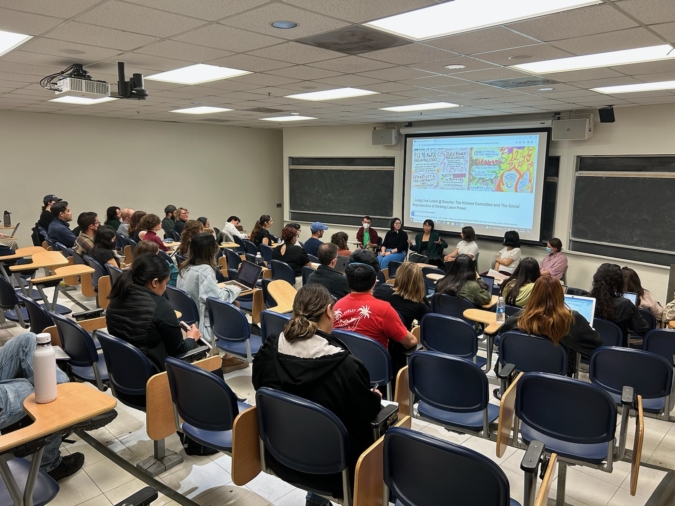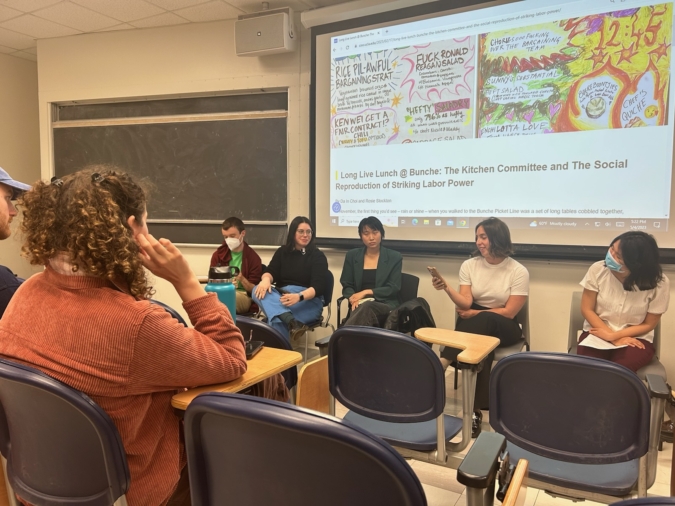#LaborSpring: Behind the Scenes/Unheard Voices of the Strike
By Magally Miranda, Labor Studies Graduate Student Researcher | June 5, 2023
On Thursday, May 4th, 2023, students, faculty, and staff gathered to assess the sources of worker power in light of the strike of academic workers across the UC system. A panel of student workers came together to reflect on their “behind the scenes” activities at the UC strike, work that often goes unrecognized, and shared lessons gained.
Earlier in the academic year, graduate student workers from the University of California participated in one of the largest strikes in higher education history. Organized under the banner of UAW 2865 and the newly-minted Student Researchers Union (SRU), graduate student workers brought their work as teachers’ assistants and researchers to a halt and joined picket lines on their respective campuses. As the days and weeks passed, noticeably fewer bodies could be seen returning to the labor-intensive pickets that circled university buildings and held disruptive actions. Official union leadership communications correlated this waning of bodies on the lines with an overall decline in strike power. This analysis of the strike’s waning power had direct consequences with regards to the demands that the bargaining team believed they could make and how long they felt that the strike could continue.
Countless rank and file members sought work-arounds to feed, sustain workers and boost morale. At UCLA, an autonomously-operated strike kitchen formed at Bunche, the Social Sciences and Humanities picket as well as a band, a robust remote picket and countless digital communications channels on Discord, Signal and WhatsApp.
Rosie Stockton and Da In Choi (Gender Studies PhD students) read from their recent blog post published by the UCLA Center for the Study of Women. Their opening remarks framed the panel in terms of reproductive labor, the often-sidelined but critical work that enabled bodies to return the next day whether to work or to the picket line. Their analysis situated the work of the Kitchen Committee at the heart of the strikes’ power – to redefine relations outside of the exploitative, productivist logics of the university and create opportunities for intimacy and joy.
The panel was moderated by History PhD student Dana Kopel and featured representatives Sunny Chen from the Kitchen Committee (History PhD student), Thalia Ertman from the Remote Picket (History PhD student) and Dylak Kupsh from digital communications (Computer Science PhD student). Each of the speakers shared about their tremendous hopes for strikes and collective action in general. When asked about whether they still believe that organizing under a union model is the best strategy, one panelist referred to an inside/outside strategy, a model where these kinds of reproductive activities are valued alongside more traditional union work like negotiating at the bargaining table.
UAW 2865 is poised to renegotiate the contract in 2025 at which time we will learn if any of the lessons about reproductive labor will be incorporated as part of a future strategy.



